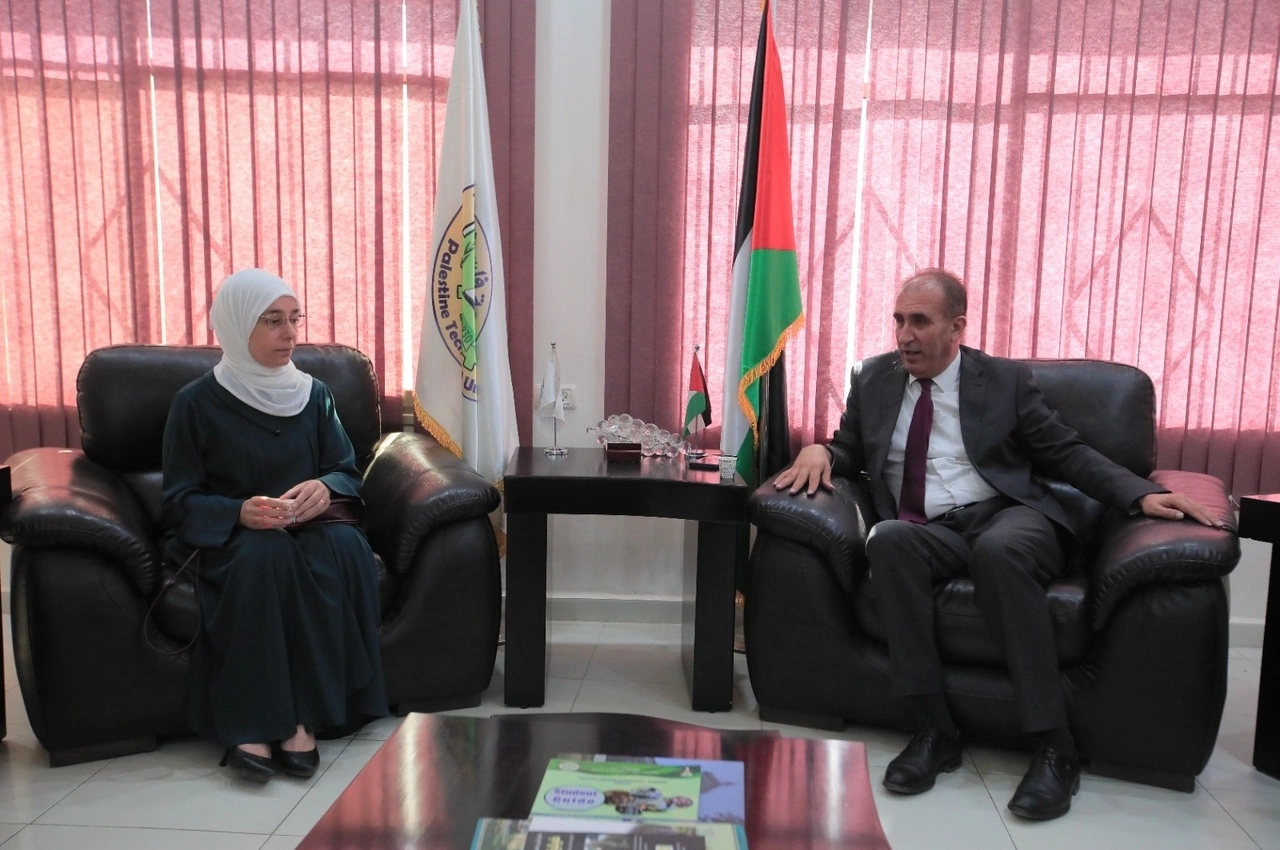


Palestine Technical University – Kadoorie PTUK, represented by its President Prof. Hussein Shanak, welcomed a delegation from the “Green Jobs – Phase II” project as part of the final visit to evaluate the project’s activities. The delegation included Dr. Khawla Najoum, Project Director in Palestine at the Food and Agriculture Organization of the United Nations FAO, and Dr. Nina from FAO’s headquarters, alongside PTUK’s Project Coordinator Dr. Yahya Isteita and the university project team.
At the outset, Prof. Shanak expressed his satisfaction with the project’s outstanding results, describing them as a genuine driver for enhancing youth income, developing their knowledge and practical skills, and preparing them for the labor market. He emphasized the university’s commitment to supporting such initiatives, sustaining them, and expanding their scope in the coming years.
Dr. Isteita and the project team presented a comprehensive overview of the project’s outputs, highlighting success stories of PTUK students who transformed their entrepreneurial ideas into viable projects. The team recommended renewing and expanding the initiative to reach a wider segment of students and graduates.
The “Green Jobs” project, funded by the Danish government and implemented by FAO in partnership with the Ministry of Agriculture and several Palestinian universities, is one of the pioneering programs aimed at empowering youth and recent graduates. It provides specialized professional skills in agriculture and food production, enhances employability, and supports entrepreneurship.
The program includes advanced training, financial support for small projects, paid practical internships of up to six months, and capacity-building in digital marketing, financial management, and business plan development for agricultural enterprises.
In her remarks, Dr. Khawla Najoum stressed that the project’s main goal is to build a generation capable of leading changes in the agricultural and food sectors through innovative and sustainable approaches. “We aim to empower young people to combine economic viability with environmental protection, enabling them to become pioneers in green agricultural development and to transform their ideas into impactful entrepreneurial projects,” she said.
She added that the project focuses on creating strategic partnerships with universities and the private sector to ensure sustainability and knowledge transfer to future generations of students and professionals in sustainable agriculture.
The evaluation team listened closely to detailed field reports and model projects carried out under the program, in addition to hearing success stories from trainees whose innovative ideas contributed to food security and natural resource preservation.
The delegation praised the quality of training and skills gained, particularly highlighting the role of PTUK students and the University’s Innovation and Technology Center in advancing impactful entrepreneurial initiatives.